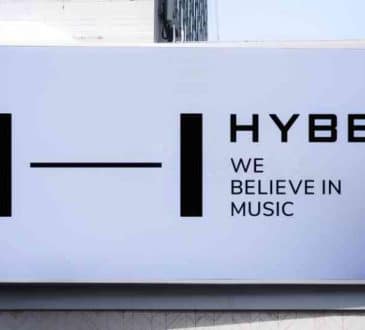How to Build an Authentic, “Cancel” Proof Brand

The most essential characteristic for building an authentic brand is integrity: you must be who you say you are, and you must remain true to your moral compass. Key aspects of this include consistency and making sure that all of your actions are in alignment with your core values, which you must actually believe. These are all vital for building and maintaining trust, credibility, and authority in any industry. A simple, persistent message (and aligned content) over time allows your audience to get to know and trust your brand—think of it like any other relationship—your target audience wants to know what they can reasonably expect from you. Knowing both you and your beliefs help your audience make an informed decision on whether or not they can safely trust your brand. Any brand that is built with integrity will naturally gain credibility and public trust over time.
A key aspect of integrity is making sure that your actions match your words; one of the best ways to show your audience who your brand is, is to make sure your actions and messaging align. For example, if you say you’re an organization that believes in charity, make sure you’re donating or doing pro bono work that’s in line with this statement. Know that because the internet has changed what information is publicly accessible, any statement your company makes can easily be fact checked. Social media especially makes it extremely easy for any large, vocal group to draw attention to a company that fails to do this, leading to backlash, crisis, and even the dreaded “cancellation” (which isn’t really a thing by the way, it’s just the natural result of betraying public trust).
Outrage and “cancel culture” aren’t new to the internet era—it’s just the free market working as it has always worked—think of the Boston Tea Party where people used their voice and economic power to stand up for what they believe in by boycotting British goods. Regardless of what you want to call it, people calling out companies whose actions are not in line with their stated values will continue for as long as companies make this mistake. Remember, social media keeps a permanent record of what we say and continues to give people both a voice and a platform; so any company not built with integrity will eventually face the public’s wrath. On the flipside, businesses built with truth, transparency, and integrity will never have trouble with scrutiny so long as their actions are in line with who they say they are. It really is as simple as that.
To build a company with integrity, you must start by figuring out exactly who your company is. While this is an extensive and even daunting process, brand building must start from the inside with some real soul searching. If you don’t know who you are, your branding will be neither specific nor consistent; you’ll lack a clear compass to follow. Figure out what is important to you and your customers—what are your core values and what do you want to be putting out into the world? Once you’re clear on this, you can start evaluating all of your past, present, and future actions to make sure that they’re in line with these core values. You’ll need to also evaluate whether your team and partnerships share and represent these values. Do your investors and leadership? Is your internal company culture also in line with your core values? What about how and who you conduct business with? For example, if you’re a clothing brand that believes in sustainability and fair labor, are your material sourcing and manufacturing processes in line with these views?
Be fully aware that taking an honest inventory of your company like this is serious, challenging work that can require making some very difficult decisions. However, what is right is rarely what’s easiest, and when you’re building your brand identity, doing what’s right matters. This can include and require not accepting money from investors who are not in alignment with your core values or turning down potential clients who aren’t in line with your core values (e.g., if you are branding yourself as a green company, you can’t also represent climate change deniers or fossil fuel companies). These can be extremely difficult decisions to make, especially for a newer company that’s working to establish itself and pay their employees. However, these big, important early decisions are what will set the tone for your brand’s future; this is when following your moral compass is the most crucial. Any actions you take that lack integrity when building your company’s brand can and will come back to haunt you. And in the long run, having an authentic brand that’s never in danger of being “canceled,” is ultimately priceless.
We’re all human, so you will make mistakes, but this is why being transparent and honest about those mistakes is so important. If you realize during your soul searching that your brand has connections, either past or present, that do not align with your core values, you must be upfront and honest. Attempting to hide or deny past mistakes only makes your company seem dishonest and undermines its credibility. Most people do believe in redemption and second chances, especially when the repentance and robust effort to do better are genuine.
Authenticity and integrity are essential for building your brand identity, no matter what it is. Figure out who your company is, be clear on what your core values are, and ensure that your business’ actions are always aligned with them. If you’re a company that is passionate and dedicated to fighting racism, do not just tokenize employees of color. Empower and support them through fair compensation and placement in a variety of leadership roles. The same is true for companies building their brand identity on women’s empowerment or environmentalism. Creating an authentic, cancel-proof brand means making sure that every facet of your business (from the way it operates to how you treat your employees and clients) is in alignment with who you say you are.
Written by Eric Yaverbaum.
Add CEOWORLD magazine to your Google News feed.
Follow CEOWORLD magazine headlines on: Google News, LinkedIn, Twitter, and Facebook.
Copyright 2024 The CEOWORLD magazine. All rights reserved. This material (and any extract from it) must not be copied, redistributed or placed on any website, without CEOWORLD magazine' prior written consent. For media queries, please contact: info@ceoworld.biz








